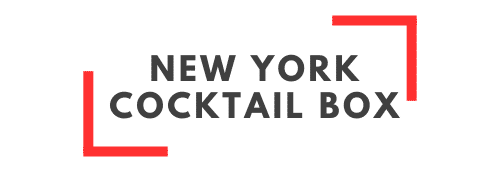New artists and music trends

Music has always been a platform for creative expression and an avenue for innovators to introduce new concepts, ideas, and styles. In recent years, with the advent of streaming platforms such as Spotify, and social media applications like TikTok, the landscape of the music industry is constantly evolving. This has opened the doors for new artists to emerge and shape future music trends.
The Influence of TikTok on Music Trends
TikTok has become a significant force in the music industry. It is a social media platform where users share short videos, often set to catchy songs. This has made it a hub for discovering new music, propelling unknown songs into chart-topping hits.
Dans le meme genre : The latest travel trends
In a time where traditional music discovery methods such as radio are on the decline, TikTok has become a primary platform for artists. It is a place where they can not only share their content but also gain significant exposure.
The success of the song "Lottery" by the artist K CAMP, more commonly known as the "Renegade song," illustrates this trend. Initially released in 2019, the song gained popularity through a dance challenge on TikTok, and it wasn’t long before it climbed the charts. Such instances highlight the power of TikTok in elevating songs and artists to newfound popularity.
Sujet a lire : Investing in real estate in Dubai: ultimate guide
Spotify: A Platform for New Artists
Spotify has transformed the way we consume music. Not only has it made it easier for users to find their favorite songs, but it has also paved the way for new artists to gain exposure.
Spotify’s discovery algorithm, ‘Discover Weekly,’ curates a playlist based on a user’s listening habits. This feature is a golden opportunity for new artists as their songs can be suggested to countless users worldwide. In short, Spotify has created a more leveled playing field, where both established and emerging artists can reach their audience.
New artists can also take advantage of Spotify’s playlisting feature. Users can create and share playlists, which can feature songs from lesser-known artists. If these playlists gain popularity, the included songs can receive a significant boost in streams.
The Emergence of Pop Music Artists
The pop music scene is an ever changing realm. Every year, new artists make their debut, introducing fresh and innovative takes on the genre. In recent years, artists like Olivia Rodrigo, Billie Eilish, and Lil Nas X have taken the pop world by storm, demonstrating that there’s no singular way to make pop music.
Rodrigo’s debut album, "Sour," showcases her raw and emotional storytelling, a stark contrast to the upbeat and bubbly pop songs that usually dominate the charts. Similarly, Lil Nas X’s genre-bending approach, blending elements of country and hip-hop, challenges the conventional boundaries of pop music.
These artists are not only redefining what it means to be a pop artist but also setting the trend for future artists, illustrating the dynamic nature of the pop music industry.
Streaming Platforms: Shaping the Future of Music
Streaming platforms are not only changing the way we consume music but are also influencing the type of music that is being made.
In the past, albums were crafted with the intention of the listener hearing it from beginning to end. However, with streaming platforms like Spotify, artists are now crafting music with the knowledge that listeners might only hear one song at a time. This paradigm shift has led to a trend towards shorter songs, as artists aim to boost their streaming numbers by having listeners play their tracks more times.
Moreover, streaming platforms have also made it more viable for artists to release music more frequently. Instead of waiting for an entire album to be completed, artists can release singles as soon as they’re ready, keeping them relevant and in the public eye.
The Role of Content Creators in Music Trends
Content creators have a significant influence on music trends. Through their platforms, they can introduce their audience to new music and artists, impacting what becomes popular.
Creators on YouTube, Instagram, and TikTok often use music in their content, whether it’s for dance challenges or background music in their videos. This means that they’re constantly in need of new songs to feature. When a creator with a large following uses a song, it can lead to a surge in popularity for that track and the artist who produced it.
Furthermore, creators often collaborate directly with artists, featuring them in their content or even in their own music. This kind of exposure can be incredibly valuable for new artists, helping them reach audiences they might not have been able to access otherwise.
The Impact of Record Labels on Music Trends
Record labels have always played a significant role in the music industry, propelling artists to stardom and shaping music trends. However, the digital age, with its streaming platforms and social media, has transformed the music marketing strategies of record labels.
In the past, record labels focused primarily on selling albums and singles. Now, they must promote their artists on platforms like Spotify and TikTok, where the competition for attention is fierce. This involves strategies such as securing playlist placements, partnering with influencers, and capitalizing on viral trends.
One example of this new strategy is Taylor Swift’s partnership with TikTok. To promote her re-released album "Red (Taylor’s Version)", Swift partnered with TikTok to launch a viral challenge featuring her song "All Too Well". This resulted in a significant surge in streams for Swift’s song, demonstrating the power of social media in music marketing.
Moreover, record labels are also diversifying their rosters to include more artists from different genres. This is in response to the increasing popularity of genre-blending artists like Bad Bunny, who combines Latin music with hip hop and pop influences. By representing artists across various genres, record labels can capitalize on multiple music trends and reach a broader audience.
The Shift Towards Short Form Content in the Music Industry
The rise of streaming platforms and social media has led to a notable shift in the music industry towards short form content. This can be attributed to the changing habits of music listeners, who increasingly prefer bite-sized content that can be consumed quickly.
For instance, TikTok, a platform known for its short videos, has become a major influencer in the music industry. Artists and record labels are creating ‘TikTok-friendly’ songs – typically under 2 minutes long and with catchy hooks – in the hopes of going viral on the platform.
This trend is also reflected in the live music scene. Concerts and live performances are now often streamed online, and artists are experimenting with shorter, more engaging sets to appeal to digital audiences. These shorter sets are not only easier for viewers to consume, but they also allow artists to showcase a wider range of their music within a limited timeframe.
Conclusion: Adapting to the Changing Music Industry
The music industry is an ever-evolving arena, continually influenced by new artists, technology, and cultural shifts. The advent of streaming platforms and social media has drastically altered the way music is created, consumed, and marketed.
Artists, record labels, and content creators must navigate these changes and adapt their strategies to sustain in a highly competitive environment. From tapping into music trends on TikTok to creating short form content for digital audiences, industry players are constantly seeking new ways to connect with listeners and stay relevant.
In conclusion, while the music industry’s landscape may change, the core principles of creativity, innovation, and connection remain paramount. The key lies in embracing these changes, exploring new avenues for expression, and remaining attuned to the dynamic nature of music trends. The future of the music industry promises to be as exciting and diverse as the artists and creators who shape it.
